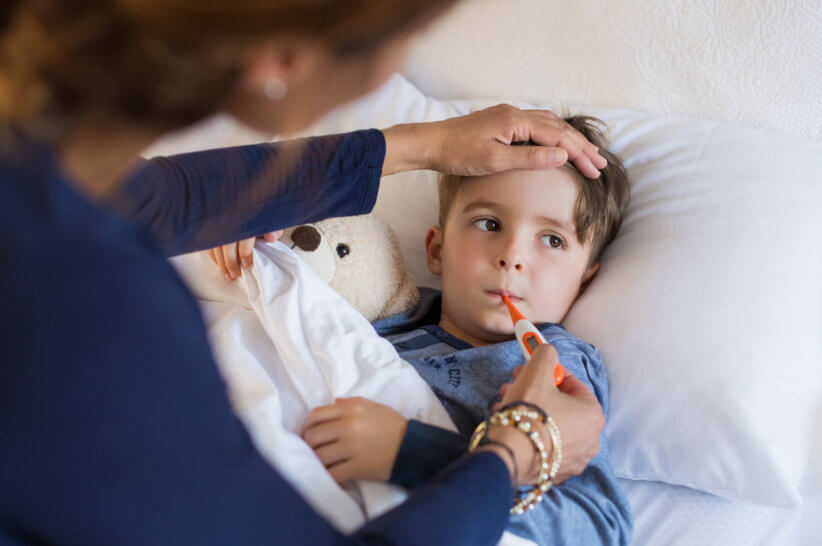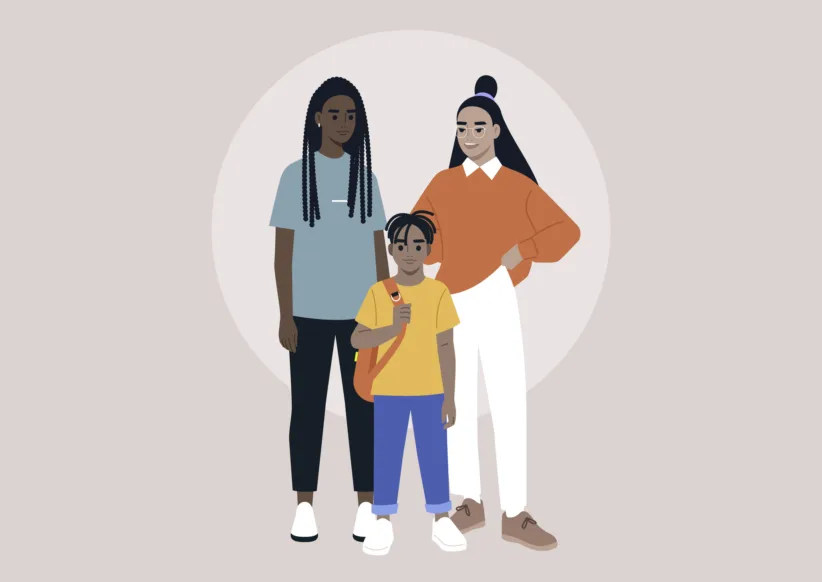
Mystery Illness Pediatric Multisystem Inflammatory Syndrome
As parents, we have had a lot to worry about these last few months. I can go over the list, but we are all well aware of the challenges we are facing these days. Now in what feels like a subplot in an apocalyptic movie, we have a mysterious illness affecting children. Many are calling this illness Kawasaki syndrome, but as we have learned — this sometimes fatal condition may mimic Kawasaki, but it is not Kawasaki disease. We spoke with Christopher Kelly MD Chief, Division of Pediatric Emergency Medicine NewYork-Presbyterian Brooklyn Methodist Hospital, for a better understanding of what this mystery illness is and what we as parents need to know about the symptoms.
Is this mystery illness Kawasaki disease?
This is not Kawasaki disease. Pediatric Multisystem Inflammatory Syndrome, as it’s called, shares a lot of similarities to Kawasaki but also several differences, which is what we are seeing. When we look at both of them — the reason people are saying its Kawasaki ‘like’ is because of these similarities. However, with PMIS, we are seeing the following:
- Conjunctivitis (red eyes) without discharge
- Red, cracked lips and a strawberry tongue
- Rash to the body (little red bumps, to patches of redness, to hives)
- Swelling and peeling of the hands and feet
What are the similarities between PMIS and Kawasaki disease?
Both tend to have high fevers for several days, sometimes more than a week.
What’s different is most kids with PMIS present with GI symptoms – severe abdominal pain, vomiting, and a lot of diarrhea.
Also, we’re seeing this predominately in school-age children (5-15 years), whereas Kawasaki typically affects kids under the age of 5. Although we see this condition in all ages, the majority is at the ages of 5 to 15.
What is concerning about both is that they lead to inflammation of blood vessels and the heart, which, if untreated, can cause serious long-standing problems, which is why this is so important to diagnose the symptoms.
Is it connected to COVID-19?
There definitely seems to be a link at this point in time. Most of these cases seem to occur approximately one month after a geographic area has seen a spike in adult COVID cases. There is a thought that this is a post-infectious reaction to COVID in children. Most children have tested positive for either the virus via a nose or stool swab, or have evidence of antibodies in their blood. Further research will need to be done to show if it’s a direct result of infection.
When is this a phone conversation with your pediatrician or an emergency room visit?
Because we are still learning about this, I think any time a child has a fever, they should reach out to their pediatrician. Fever alone does not mean they have PMIS, but when it’s a prolonged fever with the other signs and symptoms that we discussed, it makes it more concerning. A pediatrician can help guide parents as to when to seek in-person care, which may involve an examination and some laboratory work. Children should be seen emergently if parents notice any signs of respiratory distress, are showing signs of dehydration, including increased sleepiness or weakness, or they aren’t making tears or urine. They should also be concerned if they have severe abdominal pain, as this may be a sign of PMIS or other surgical problems like appendicitis.
Is there any way to avoid PMIS?
If we work off the assumption that this is related to COVID infection, the best way to avoid this is the same as trying to avoid an actual COVID infection. Social distancing, masking for kids older than 2 when out in public spaces, and plenty of hand washing is our best bet. It is important to understand that although many kids have already probably been infected with COVID, an overwhelming majority of them will not develop PMIS, and will recover just like they would from any other viral infection they may have had in the past.
Is Pediatric Multisystem Inflammatory Syndrome treatable?
Speaking of recovery, an overwhelming majority of children who have been diagnosed with PMIS make a full recovery. PMIS does seem to be responding to the same medications we give to children with Kawasaki’s disease. IVIG, steroids, and aspirin are being administered, and we are seeing symptoms completely resolve in a day or two. Of course, timely diagnosis and treatment is key, all the more reason to be in contact with your pediatrician should they get sick.
Dr. Kelly mentioned that if a parent feels that they need to visit an emergency room to please be aware that hospitals are being efficient in seeing patients as soon as possible due to COVID-19 fears. If you genuinely feel you have an emergency, please visit your hospital, especially if advised by your pediatrician. On a personal note, it is quite scary that on top of COVID-19, we now have a ‘mystery illness’ to be on the alert. Although it is less than ideal for visiting an emergency room during a pandemic — my son (and I) recently visited two emergency rooms and stayed in a New York City hospital for ten days. I have only good things to say about the cleanliness and diligence the hospitals provided in keeping the area sanitized and safe. I have sincere gratitude for all New York Health professionals and essentials workers who work hard every day to keep us safe.





















